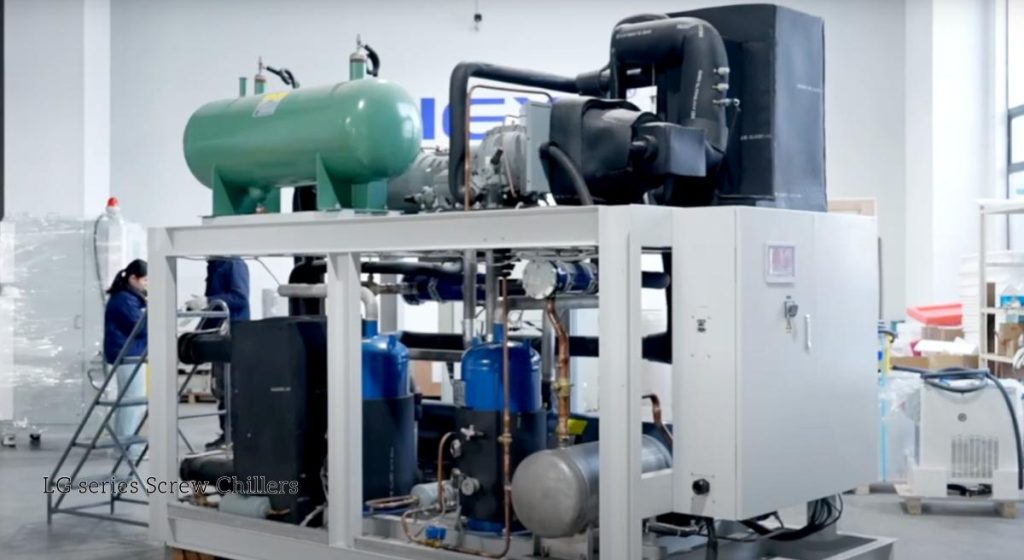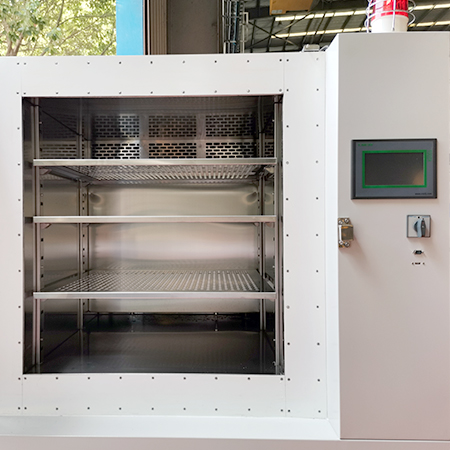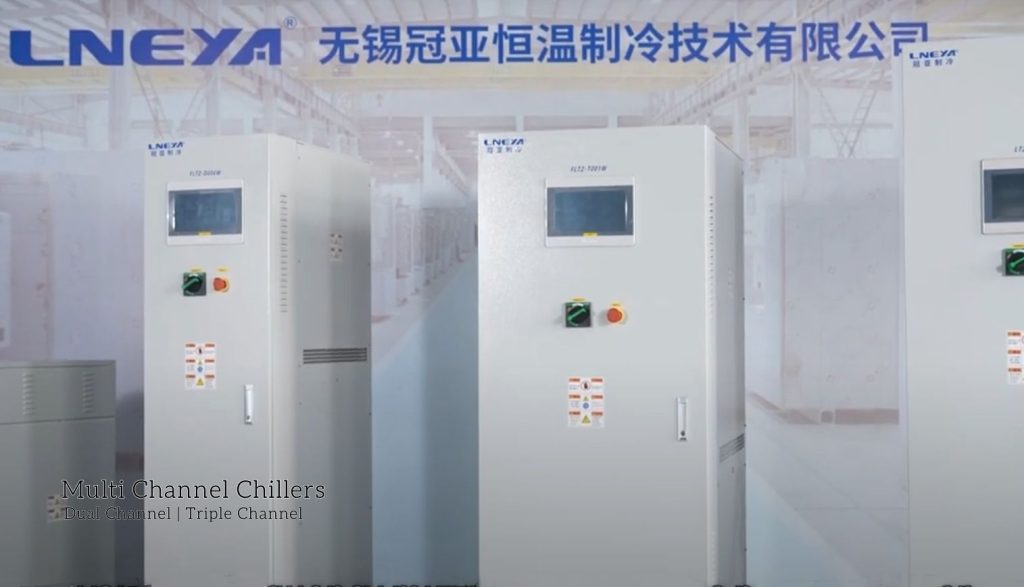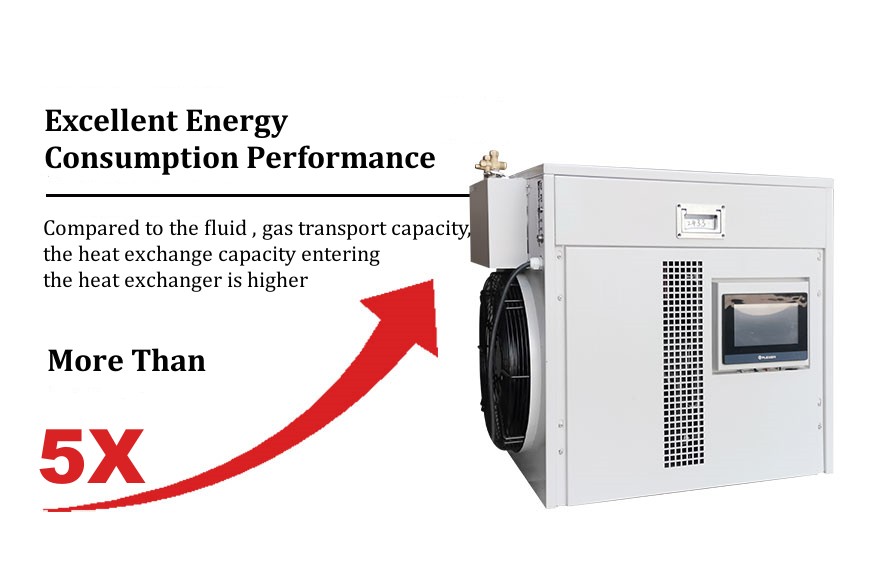Oil Cooling vs Water Cooling Chiller System
In industrial chillers, thermal oil and pure water are the two most common coolant media. A chiller using oil is called an oil cooling chiller. One that uses water is called a water cooling chiller. What’s the difference? How do you choose the right one for your process?
What is an Oil Cooling Chiller?
An oil cooling chiller uses thermal oil in its coolant loop. The oil absorbs heat from the machine or process and carries it back to the chiller’s evaporator. There, the heat transfers to the refrigerant, and the refrigerant rejects it in the condenser.
Oil chillers are used where oil temperature must be controlled, such as in machine spindles, hydraulic systems, or lubrication loops. Because oil has lubricating properties, it not only cools the system but also reduces wear on moving parts.
What is a Water Cooling Chiller?
A water cooling chiller uses pure water in the loop to remove heat. Pure water is inexpensive, has a high specific heat capacity, and transfers heat well. That’s why it’s common in process chillers. You’ll find it in injection molding, laboratory chillers, and MRI cooling systems.
Oil Cooling vs. Water Cooling Chillers
Cooling Efficiency
Water’s specific heat capacity is about 4.18 kJ/kg·K. This means water can store and carry more heat per unit volume than oil. Thermal oils vary by type, but all are lower than water. Water also has higher thermal conductivity, so heat moves faster through it. For large heat loads or where fast cooling is critical, water chillers usually win.
Temperature Range
Most water chillers run between 5°C and 30°C. Below 0°C, water freezes, so it’s not suited for sub-zero cooling unless you add glycol to lower the freezing point.
Thermal oil has a much lower freezing point and a high boiling point. Many oils can run from -20°C to 120°C or more, depending on formulation. High-performance oils can handle 300°C. Oil is a good fit for high-temperature or extreme conditions, especially when the lubricant must stay at a controlled temperature.
Maintenance
Water systems need regular checks for pH, hardness, and contamination. Without treatment, scale or corrosion can damage equipment.
Oil systems need oil quality checks and periodic replacement. Key points are keeping the loop clean, maintaining pumps, and checking seals to prevent contamination. High temperatures speed up oil aging, so temperature control is still important.
Cost
Water is cheap and easy to refill. But it needs frequent maintenance, which adds to long-term cost. Oil is more expensive upfront and costs more to replace, but the maintenance interval is longer. Over time, oil systems can be more cost-effective if downtime is expensive.
Applications
Water is common in labs, pharma, and food processing, where efficiency and cleanliness matter. Oil is used in lubrication cooling, compressor oil cooling, turbines, and high-temp industrial machines where stability and lubrication are key.
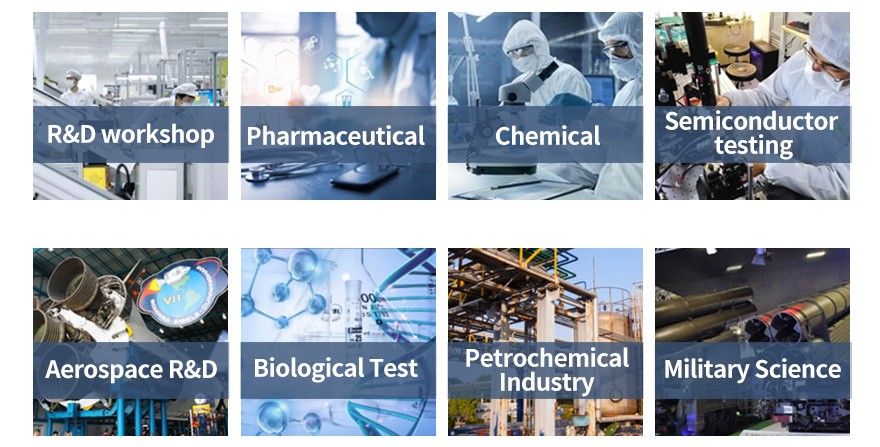
How to Choose?
Process and Heat Load
Calculate the heat load from your equipment or process. Know the peak heat output and the allowable temperature rise. If the heat load is high and you need fast cooling, choose a water-cooling chiller with higher heat transfer efficiency.
Temperature Range and Min/Max Process Temperatures
For low temperatures (≤0 °C, anti-freeze required): If the chiller runs above 5 °C and the max temperature is around ambient, water is fine. If you need to go below 0 °C but above –40 °C, a glycol–water mixture at the right concentration is more cost-effective. For process temperatures above 100 °C, go with a thermal oil system that can handle high heat and won’t evaporate easily.
Lubrication or Oil Contact Needs
If the coolant loop also needs to provide lubrication or comes into direct contact with gears, bearings, or hydraulic parts, choose an oil-based coolant.
Sanitation Requirements
For food, pharma, or any process that could be affected by microbial growth, treated water is a better choice. Oil is often not acceptable in clean environments. If scaling or corrosion is a concern, oil can be considered.
Maintenance and Cost
Water-based coolants have lower upfront cost and higher cooling efficiency, but they need more frequent maintenance. Do you have staff who can handle water treatment, scale prevention, and disinfection? If not, oil-based coolant costs more but requires fewer shutdowns for maintenance, reducing daily workload.
Equipment Compatibility and Vendor Support
Make sure the coolant is compatible with your heat exchanger, pumps, seals, and piping to avoid material damage. Also, you will need technical help and after-sales support during operation. Work with a chiller supplier who can provide long-term technical service and reliable support.
Conclusion
If you’re choosing a chiller for a new project or upgrading old equipment, LNEYA offers a full range of cooling systems. We supply water-cooling chillers, oil-cooling chillers, and glycol chillers, with air-cooled, water-cooled, scroll, and screw models to choose from. If a standard unit can’t meet your temperature control needs, our technical team can design a custom solution.
Contact us to discuss your cooling requirements.

- Chiller Components and Refrigeration Fundamentals Guides
- Chiller Types and Selection Guides
- How Does a Peltier Cooler Work
- Peltier Chiller vs. Compressor Chiller
- What Is a Peltier Chiller
- OEM vs Aftermarket Chiller Spare Parts
- Chiller Surge
- Chiller Cooling Capacity Units
- December 2025
- November 2025
- October 2025
- September 2025
- August 2025
- July 2025
- June 2025
- May 2025
- March 2025
- February 2025
- January 2025
- December 2024
- November 2024
- October 2024
- September 2024
- August 2024
- July 2024
- June 2024
- May 2024
- April 2024
- March 2024
- February 2024
- September 2023
- July 2023
- June 2023
- May 2023
- January 2023
air cooled chiller chiller Chiller Installation Chiller Maintenance chiller refrigerant chillers Cold Assembly Freezer cooling chiller cooling heating system cooling system dynamic temperature control system energy efficient chiller explosion-proof chiller freezer heating circulator industrial chiller industrial chillers industrial cooling industrial freezer industrial refrigerator jacket reactor laboratory chiller low temperature chiller news oil chiller process chiller process cooling reactor chiller reactor cooling reactor cooling heating reactor heating cooling refrigerated circulator screw chiller semiconductor chiller semiconductor test chiller sundi tcu temperature control test chamber thermostat ultra low temperature chiller vehicle test chiller water chiller water cooled chiller
Related chillers
CONTACT US
TEL:
EMAIL:
WeChat & WhatsApp:

Wechat QR

Have a question or need a quote? Fill out the form below, and our team will get back to you within 24 hours.
 LNEYA Industrial Chillers Manufacturer Supplier
LNEYA Industrial Chillers Manufacturer Supplier









